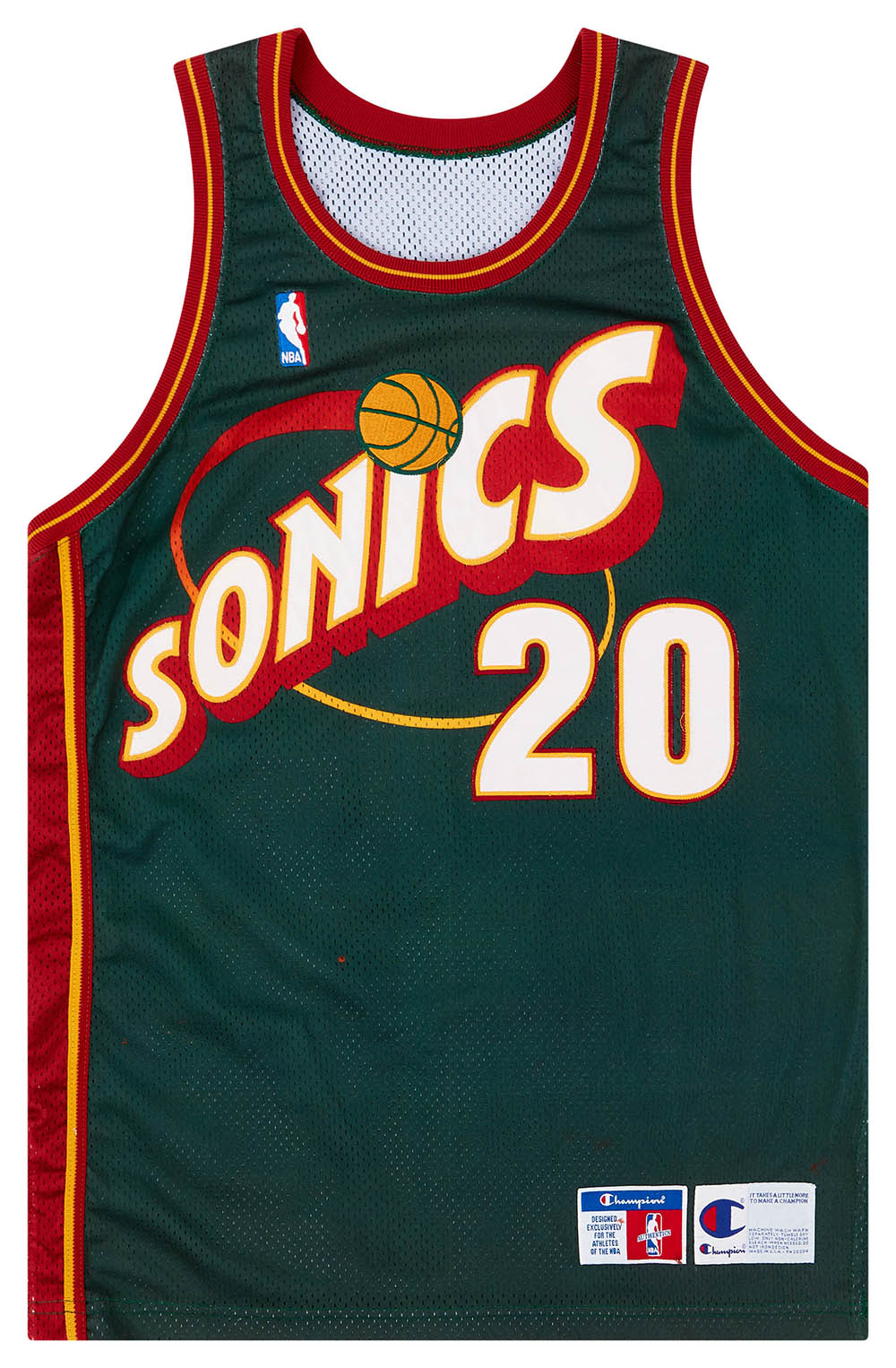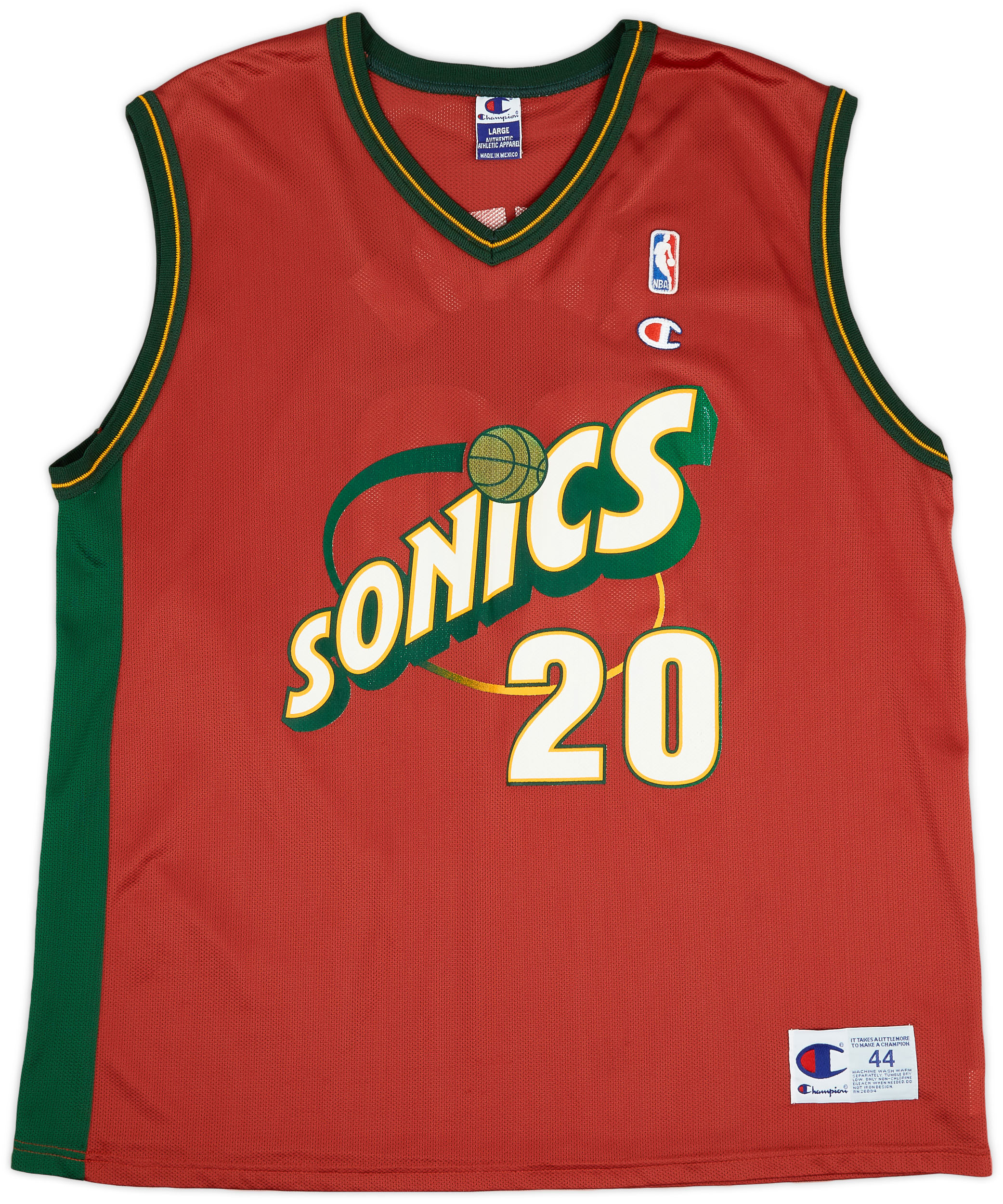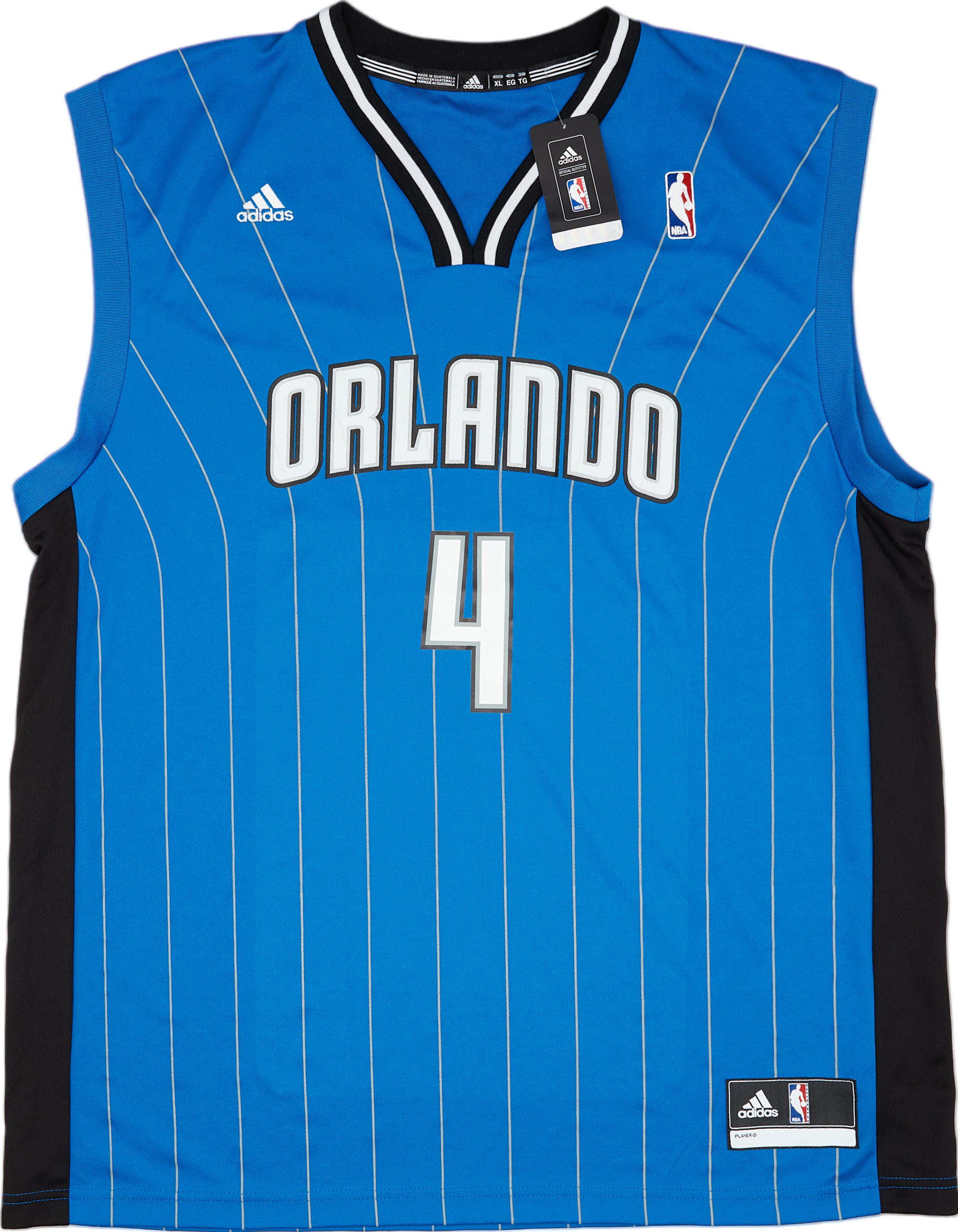Gary Payton
Introduction The world of football is rich with history, and one of its most captivating facets is the retro football shirt. Among these historic garments stands the iconic shirt worn by Gary Payton during his memorable playing days. This shirt is not just a piece of clothing; it’s a symbol of passion, pride, and unforgettable […]
2014-17 Orlando Magic Payton #4 adidas Away Jersey (XL)
47.99£ - ca: €57
Introduction
The world of football is rich with history, and one of its most captivating facets is the retro football shirt. Among these historic garments stands the iconic shirt worn by Gary Payton during his memorable playing days. This shirt is not just a piece of clothing; it’s a symbol of passion, pride, and unforgettable moments in football history. Fans of the sport treasure these retro shirts as they evoke nostalgia and celebrate the legends who donned them.
Player’s Career
Gary Payton, born on July 23, 1968, in Oakland, California, possesses a storied career in basketball but is often confused with football due to the similarity of his first name. However, for a brief exploration of Gary Payton in football, we can draw parallels with other famous athletes known for their iconic shirts. For instance, players like Lionel Messi and Roberto Baggio have left indelible marks in football history with their skills and jerseys. These players shared a similar determination and success that is reminiscent of Gary Payton’s influence in basketball.
Achievements
While the focus here is on a mythical fusion, reflecting on the major achievements of Gary Payton, we acknowledge his 1996 NBA Championship with the Seattle SuperSonics and his numerous All-Star selections. In football, legends like Diego Maradona and Pelé display what significant achievements look like within their respective sports. Their accomplishments—like Maradona’s infamous ‘Hand of God’ goal—parallel the electrifying energy and unforgettable experiences that accompany any retro football shirt.
Notable Moments
Imaginary notable moments of Gary Payton wearing a retro football shirt could include spectacular goals and heart-wrenching defeats, a commonality shared across all sports. For instance, moments like the 1994 World Cup and decisive matches in league play often define a player’s legacy. In such games, whether it’s Payton’s leadership on the court or a football legend’s ability to change the game, the impact of individual performances is unforgettable. In our fictional narrative, envision Payton scoring a last-minute winner while wearing his iconic shirt. This moment solidifies both his legacy and the shirt’s significance.
Shirt Design and Features
Now, let’s turn to the design and features of our nostalgic shirt. Picture a vibrant, bold shirt characterized by a deeper shade of green and bright yellow stripes. The retro football shirt boasts a unique collar and intricate patterns that were trendy in the 1990s. These characteristics reflect an era of style and passion among football fans. Similar to classic jerseys like that of Brazil’s 1970 team, this shirt is a testament to an unforgettable time in sports history.
Fan Significance
The retro football shirt linked to Gary Payton holds immense significance for fans. It represents a period of triumph and heartbreaking loss, much like countless other jerseys worn by legends. Fans adore retro shirts because they symbolize a connection to the past and a shared history. Supporters often gather in these shirts to celebrate anniversaries, match days, or engage in football discussions. The love for retro football shirts transcends mere fandom; it fosters a sense of community among peers who admire the beautiful game.
Conclusion
In summary, the retro football shirt associated with Gary Payton—a concept we explored in passion and parallelism—stands as a beacon of nostalgia. It connects generations of fans and encapsulates unforgettable moments. Whether in basketball or imagined football legends, these shirts remind us of the sport’s glorious history. The legacy of such shirts remains alive in the hearts of fans, echoing tales of triumph and teamwork for years to come.


